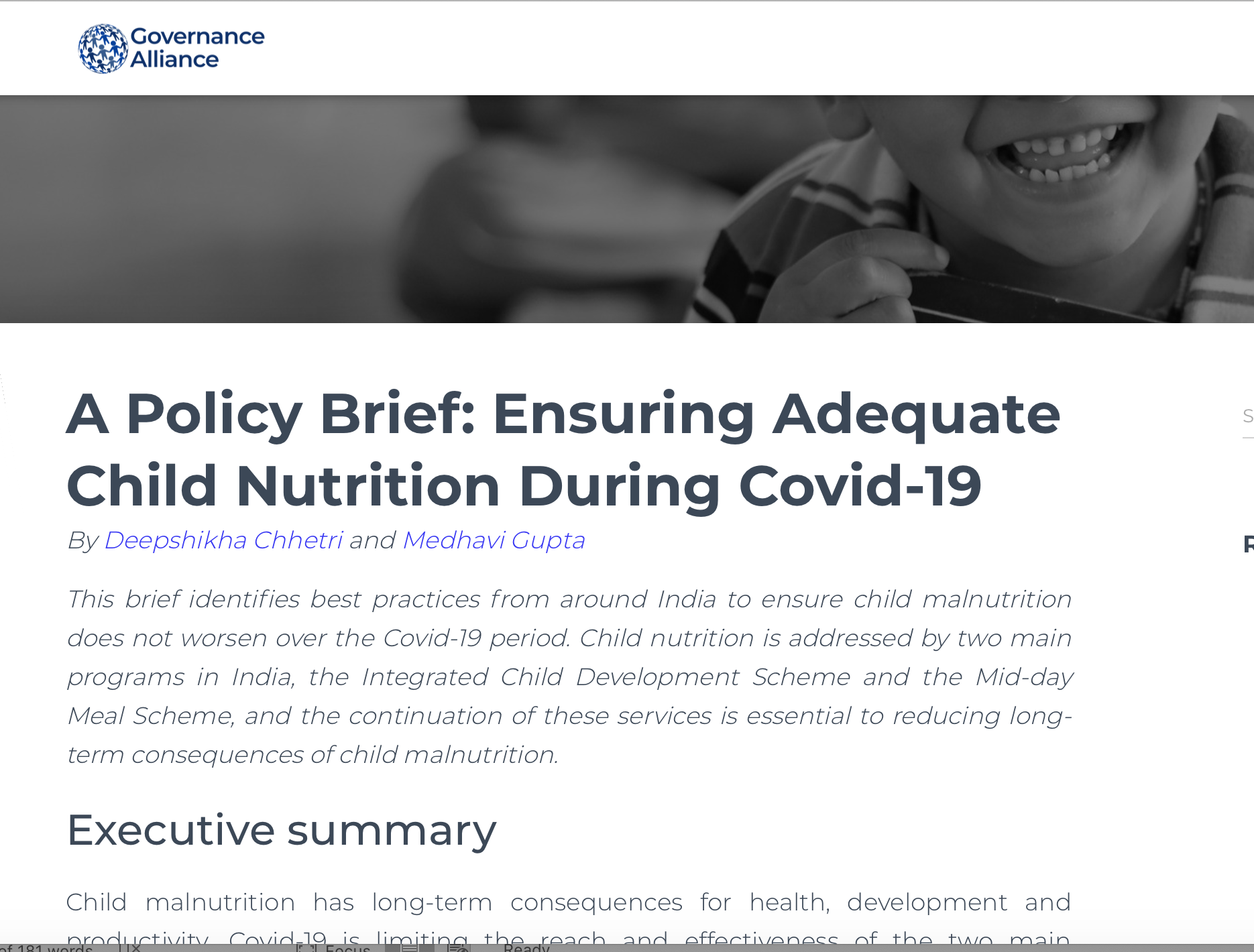Child malnutrition has long-term consequences for health, development and productivity. Covid-19 is limiting the reach and effectiveness of the two main nutrition programs in India: The Integrated Child Development Scheme and the Mid-day Meal Scheme. Currently, many Anganwadi workers are being overburdened with Covid-19-related activities and have ceased the provision of meals. Children in containment zones are not able to access Anganwadi centres and school children are missing out on their meal. Where rations are being provided, they often do not include all micronutrients and some parents are unaware about appropriate meal preparation and are not feeding their children adequately. Anganwadi workers have also not been provided with protective equipment.
Recommendations were identified based on best practices from around the country, including: (1) Engaging Anganwadi workers to deliver food rations or providing cooked meals to all children aged up to 14 years old, until schools open; (2) Training a separate cadre of Covid-19 community health workers to free up Anganwadi workers; (3) Providing Anganwadi workers with PPE including masks, sanitizers and gloves; (4) Ensuring children receive the right mix of nutrients in meals; (5) Sending Direct Benefit Transfer payments where the provision of meals is difficult; and (6) Training Anganwadi workers to capacity build parents in preparing nutritious meals.
Deepshikha Chhetri and Medhavi Gupta. (2020). A Policy Brief: Ensuring Adequate Child Nutrition During Covid-19. Governance Alliance.






